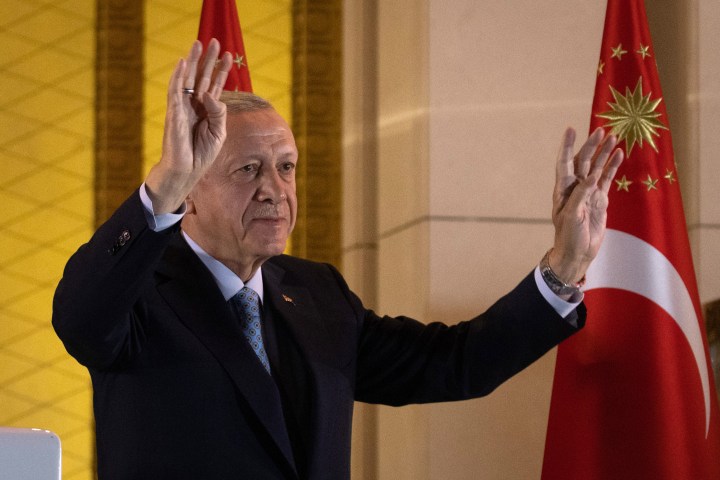
With new government hires, Turkey may be headed back to economic sanity
With new government hires, Turkey may be headed back to economic sanity

Cutting interest rates to stem inflation has been a priority for governments all over the world in the last couple of years. The opposite has been true in Turkey, but that may soon change.
President Recep Tayyip Erdogan has appointed a new economic team to get spiraling price increases under control following his recent re-election victory. Among the appointments are a new central bank chief and a new economy minister, both of whom have been praised by international observers for appearing capable of undoing Erdogan’s unorthodox policies that have contributed to the country’s inflation woes.
Marketplace’s Sabri Ben-Achour spoke with Victoria Craig, a reporter based in Turkey who has been covering the election and its aftermath. The following is an edited transcript of their conversation.
Sabri Ben-Achour: So let’s just zoom out real quick and talk about economic policy in Turkey. Inflation there is insane. It’s off the charts. And the newly reelected president has basically so far done literally the opposite of what economics says you should do to fight inflation. Why has that been?
Victoria Craig: Well, it’s because President Erdogan has just always been opposed to higher interest rates. He’s said in the past that they cause inflation rather than help it. He’s described them as the mother and father of all evil. Over the past two years, interest rates have been slashed from 19% to 8.5%, and that is despite soaring inflation that topped out in the fall at 85.5%.
Ben-Achour: With that in mind, Turkey now has a new central bank governor with some sort of traditional economic credentials. Tell us about her.
Craig: Well, her name is Hafize Gaye Erkan and based on her resume, you can see why the international community is sort of cheering this appointment today. She’s a dual Turkish-American citizen. She has a degree in financial engineering and operations research from Princeton. She spent a decade at Goldman Sachs and most recently she was the co-CEO of the now-failed First Republic Bank for eight years. She left that job in December 2021.
Ben-Achour: And Turkey’s also got a new finance and treasury minister, Mehmet Simsek. So with this new team, do we think Turkey is going to start digging its way out of its inflation problem by raising interest rates and doing what economics would suggest you should be doing?
Craig: Well it certainly feels like that’s what’s been teed up. And when he took over on Sunday, Simsek pledged to return Turkey to “rational economic policy”. This week, we’ve already seen part of that new strategy put in place with the lira’s more than 7% plunge to more than 23 to the U.S. dollar. It had been artificially held above 20 ahead of the election, and economists still say there’s room for it to fall even further. That itself is inflationary. So many expect the interest rate hikes will be very soon to combat both the impact of the currency declines and the already very high inflation levels that we’re seeing here.
Ben-Achour: On the other hand, raising interest rates can be tough politically. How do we know President Erdogan isn’t going to just intervene in economic policy like he has in the past to just scrap the whole thing?
Craig: We don’t know, that’s the short answer. The next central bank meeting is in almost exactly two weeks. As you mentioned, though, the big question is how much we’re going to see interest rates rise, and for how long. As we’ve seen in the past, the president has not been shy about dismissing central bankers and finance chiefs that he disagrees with.
There’s a lot happening in the world. Through it all, Marketplace is here for you.
You rely on Marketplace to break down the world’s events and tell you how it affects you in a fact-based, approachable way. We rely on your financial support to keep making that possible.
Your donation today powers the independent journalism that you rely on. For just $5/month, you can help sustain Marketplace so we can keep reporting on the things that matter to you.

















